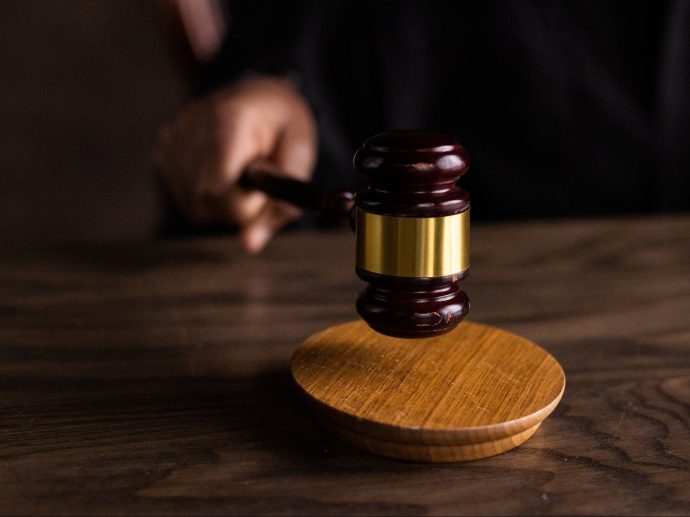Categories more
- Adventures (17)
- Arts / Collectables (15)
- Automotive (37)
- Aviation (11)
- Bath, Body, & Health (77)
- Children (6)
- Cigars / Spirits (32)
- Cuisine (16)
- Design/Architecture (22)
- Electronics (13)
- Entertainment (4)
- Event Planning (5)
- Fashion (46)
- Finance (9)
- Gifts / Misc (6)
- Home Decor (45)
- Jewelry (42)
- Pets (3)
- Philanthropy (1)
- Real Estate (16)
- Services (23)
- Sports / Golf (14)
- Vacation / Travel (59)
- Watches / Pens (14)
- Wines / Vines (24)
- Yachting / Boating (17)
Criminal Defense vs. Prosecution: The Differences You Need to Know
Published
02/21/2023Finding yourself involved in a legal battle can be a stressful and time-consuming event. Understanding the differences between the defense and prosecution, as well as the legal counsel on both sides, can help you start to learn about how the legal proceedings will occur. Should you find yourself accused of a crime, whether civil or criminal, reach out to an accredited attorney who will hear your case.
What is a Criminal Defense Attorney?
A criminal defense attorney is a lawyer who has chosen to specialize in criminal defense. This means they don’t handle generic lawsuits or most civil cases. Instead, they focus on protecting the rights of defendants who have been accused of a criminal act. These attorneys can specialize in certain types of crime as well, including drug crimes, sex crimes, federal charges, and more.
The Goal of a Defense Attorney
A defendant is innocent until proven guilty, meaning the primary goal of a defense attorney is to build a legal defense that reduces the consequences of the crime and interrupts the prosecutions efforts. As a simple example, if your defense attorney finds someone who has proof you were in another location at the time of the crime, that alibi will prove you couldn’t have been involved.
Being hit with a criminal charge can have a significant impact on your future, which is why hiring a criminal defense attorney is so important. In some cases where a large amount of evidence already exists indicating the defendant committed the act, a defense attorney’s goal will simply be to provide enough evidence to get the sentence for the crime reduced.
What is a Prosecutor?
On the other side of the legal battle are prosecutors. They are lawyers just like criminal defense attorneys, but a prosecutor represents the plaintiff, typically the victim of the crime, which can be the government or an individual. Prosecutors are representatives of the district attorney’s office, unless they operate in a state that allows for private prosecution.
The Goal of a Prosecutor
Rather than trying to defend, a prosecutor’s goal is to charge the accused with a specific set of crimes that they then need to prove, using evidence, beyond a reasonable doubt that the accused individual or group is guilty. In some cases, a prosecutor may offer a plea deal to the defense where the accused is convicted of something at a lesser charge.
How Does a Court Case Work?
The proceedings for a court case can differ slightly depending on whether or not it is a civil or criminal case. However, when a criminal case is underway the process will look similar to the below:
- A person is arrested by the police on suspicion of a crime
- The prosecutor’s office charges the individual with a crime
- Arraignment hearing will occur at which a defendant will announce their plea of guilty, not guilty, or no contest
- A case proceeds to trial and either becomes a jury trial or a court trial
- If it’s a jury trial, the jury will be chosen by the prosecution and defense lawyers
- Both sides will present evidence to the jury
- Both sides will present witnesses to the jury
- Closing arguments occur
- The jury makes a verdict
The above steps are just a high-level overview of how the legal proceedings may occur in a criminal case. Bail may also be involved which allows a defendant to stay out of jail until the date of arraignment and trial, but flight-risk individuals may not be given this option. Additionally, the case may not even go to trial. In fact, only around 2% of federal criminal defendants will ever go to trial in the first place, as plea deals are more common.
Tips for If You Find Yourself Accused of a Crime
Being on the receiving end of a criminal charge is never fun. Use the following tips to give yourself the best chance at protecting your name:
- Don’t resist when arrested
- Don’t destroy any evidence that may be at the scene
- Contact a defense attorney as soon as possible
- Don’t say anything without a lawyer present
Start thinking about witnesses or evidence that may be helpful to the case
Seek out legal protection today
Don’t settle for trying to represent yourself in a court of law. Being accused of a crime is at troubling event and, depending on the nature of that crime, the consequences can be dire. Contact a criminal defense attorney as soon as possible after you have been charged to see how you can prove your innocence in court.















